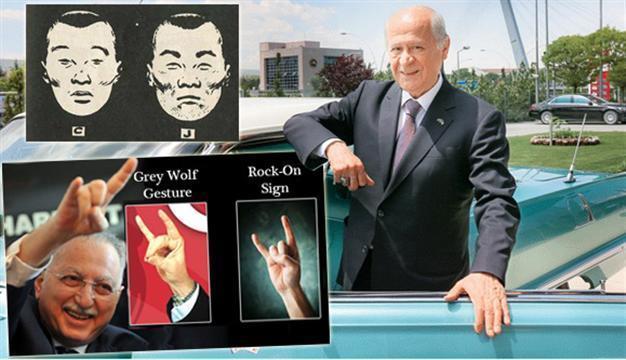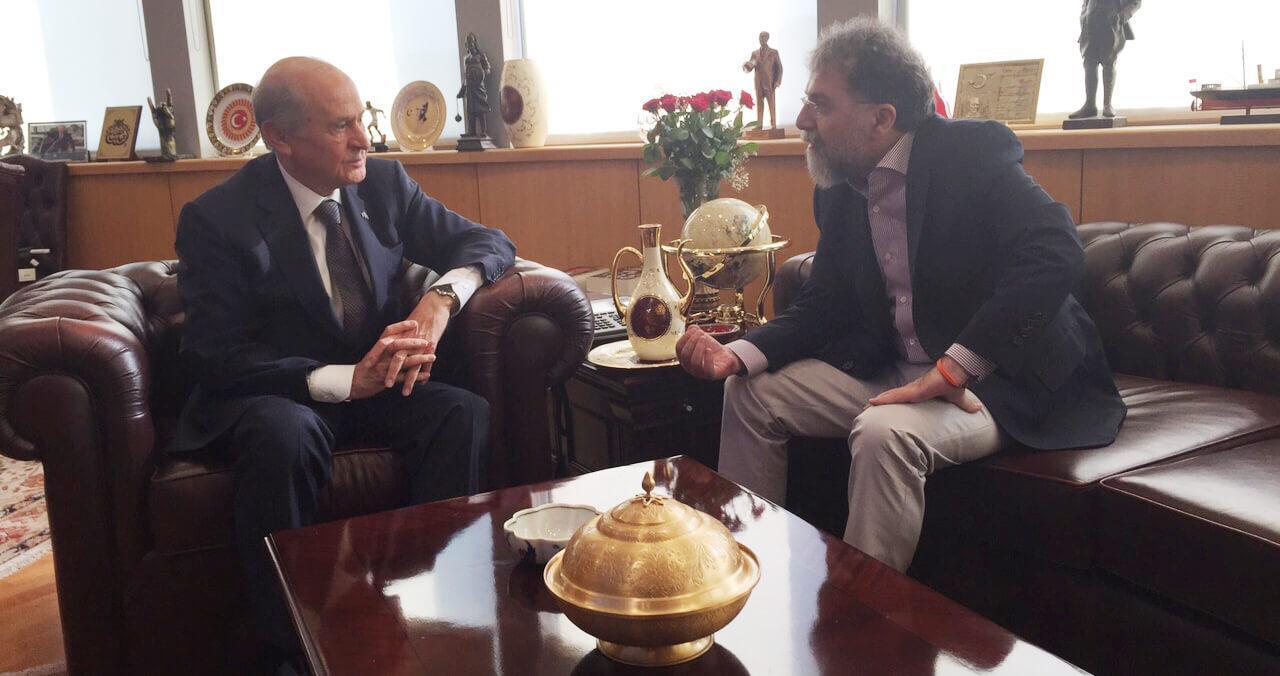Koreans and Chinese 'both have slanted eyes,’ Turkey’s nationalist leader says over attacks on tourists
Ahmet Hakan

Remarks by Bahçeli (R) stirred a heated debate as some social media users sarcastically shared pictures to guide Turkish nationalists in recognizing the facial features of various Asian countries. The MHP leader also pointed out the ‘minor difference’ between his party's Grey Wolf gesture and the rock-on sign. Ekmeleddin İhsanoğlu (L), now an MHP deputy, was left red-faced after mistaking the signs when he was nominated by the party in April.
The head of the Nationalist Movement Party (MHP) has raised some eyebrows by saying both Chinese and Koreans "have slanted eyes" while touching on attacks on Chinese people in Turkey to protest the alleged abuse of Uighurs in Xinjiang/East Turkestan.“These are young people,” the MHP chair Devlet Bahçeli said in an interview to daily Hürriyet, playing down the recent ultranationalist attacks on Asian tourists.
“Some can pull these young people and they may follow them. Moreover, what is the difference between a Korean and a Chinese? They both have slanted eyes,” he added.
Bahçeli’s remarks stirred a heated debate on Turkish social media on July 8 with some commentators claiming that they amounted to racism, while others sarcastically shared pictures to guide Turks in recognizing the facial features of various Asian countries.
Misguided attacks
Istanbul police launched an investigation after a MHP-linked youth organization reportedly attacked a group of Korean tourists in Sultanahmet Square on July 4, following a march to protest China’s restrictions on the religious freedom of ethnic Uighur Muslims in Xinjiang.
Three days before the attack, a Chinese restaurant in Istanbul was vandalized by ultranationalists, although its owner was a Turk and its cook was an Uighur.
On July 6, Beijing denied having “ethnic problems” in its far west and stated its Muslim Uighur minorities there “enjoyed” freedom of religion, in response to Turkish Foreign Ministry’s June 30 statement, which had expressed “deep concern” about reports that a fasting ban was imposed in China’s autonomous Xinjiang region.
In recent days, a number of pictures depicting massacres and serious human rights abuses have been circulating on the internet, purportedly showing Han Chinese oppression against the Uighurs. Many of the pictures, however, have been taken out of context and are not from Xinjiang.

Grey Wolf gesture versus ‘Rock-on’ sign
“It is easy to provoke a few people,” Bahçeli (L) said in the interview, refusing to condemn the recent wave of ultranationalist attacks in Turkey.
Insisting on the difficulty of distinguishing between small differences, he gave an example from music beside the racial one. “For instance, the Grey Wolf gesture [of Turkish nationalists] is very similar to the heavy metal gesture. There is a small difference between two,” he said.
While Bahçeli dismissed the rising anti-Chinese sentiments in Turkey, MHP-linked groups have now begun openly printing death threats against the Chinese. “We crave Chinese blood,” said a banner hung in a building where the MHP-linked youth organization “Idealist Hearths” (Ülkü Ocakları) is headquartered in Istanbul’s Kemalpaşa neighborhood on July 7.

As anti-China protests spread around Turkey, Beijing issued a travel warning to its citizens on July 7, stressing that some tourists had been “attacked and harassed.”
















